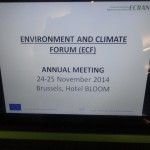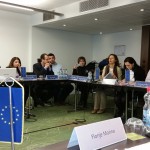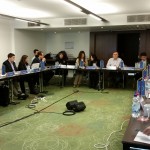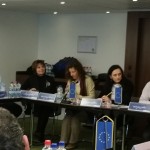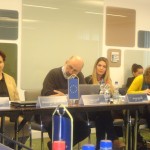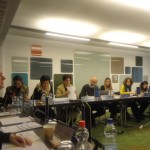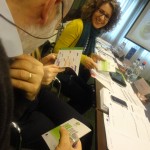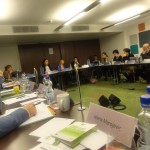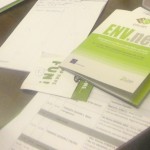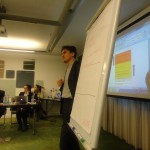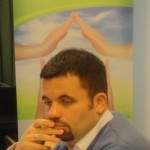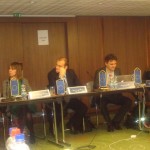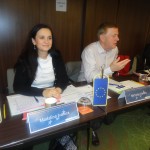Some of ENV.net partners participated on ECF Annual Meeting in Brussels with European Commision (24-25 November 2014), using that opportunity to promote results of ENV.net project and to promote partnership. ENV.net broshure publish by Albanian partner is distributed.
Agenda of the Meeting includes:
– NGO SESSION: Self-organizing and preparatory meeting for discussion with the EC
– DIALOG WITH DG ENVIRONMENT REPRESENTATIVES: Mr Nicholas Hanley (head of Unit of International, Regional and Bilateral Relations), Mrs Madalina Ivanica (Policy officer-Unit of International, Regional and Bilateral Relations), Ms Marta Moren Abat (Policy Officer-Unit of International, Regional and Bilateral Relations), Mrs Slavitza Dobreva de Schietere (Policy Officer-Unit of Enforcement, Cohesion Policy and European Semester), Ms Iris Valkovic (Policy Officer-Unit of Enforcement, Cohesion Policy and European Semester), Mr Dimitrios ZEVGOLIS (DG Climate Action) and Mrs Ivana Mijatovic (DG Climate Action ), on thematic issues:
- – Water
- – EIA/SEA
- – Climate Change
Annual Meetings build on the outcomes of all Environment and Climate Forum (ECF) activities and the events represent the key opportunity for the civil society to get engaged into dialogue with high representatives of the European Commission. The agenda for the annual meetings is prepared in a bottom-up manner, with key input from the NGOs, as well as in consultation with the EC. The annual meetings are planned in a way to allow enough room for NGOs to self-organize , to provide state-of-the art information on EU policies and legislation, to develop capacities of NGOs, and allow time for bilateral meetings . Following preparatory steps at country level, the organisation of annual meetings builds on the outcomes of 8 conducted in-country preparatory meetings and wider consultations.
Key objectives of the meeting:
(i) To disseminate information (to the broad NGO community and other relevant stakeholders) about recent development, planned climate and environment policies and legislation of the European Union and evaluation of progress and bottlenecks in the EU accession process from the EC perspective;
(ii) To increase capacities of the regional NGOs to actively participate in EU enlargement;
(iii) To bring to the attention to the EU the enlargement points and concerns of civil society and discuss how to address issues and cases identified by the NGOs;
Participants: Representatives of 21 NGOs selected for ECF-ECRAN, Representatives of the European Commission, ECF Support Team and ECRAN experts.

